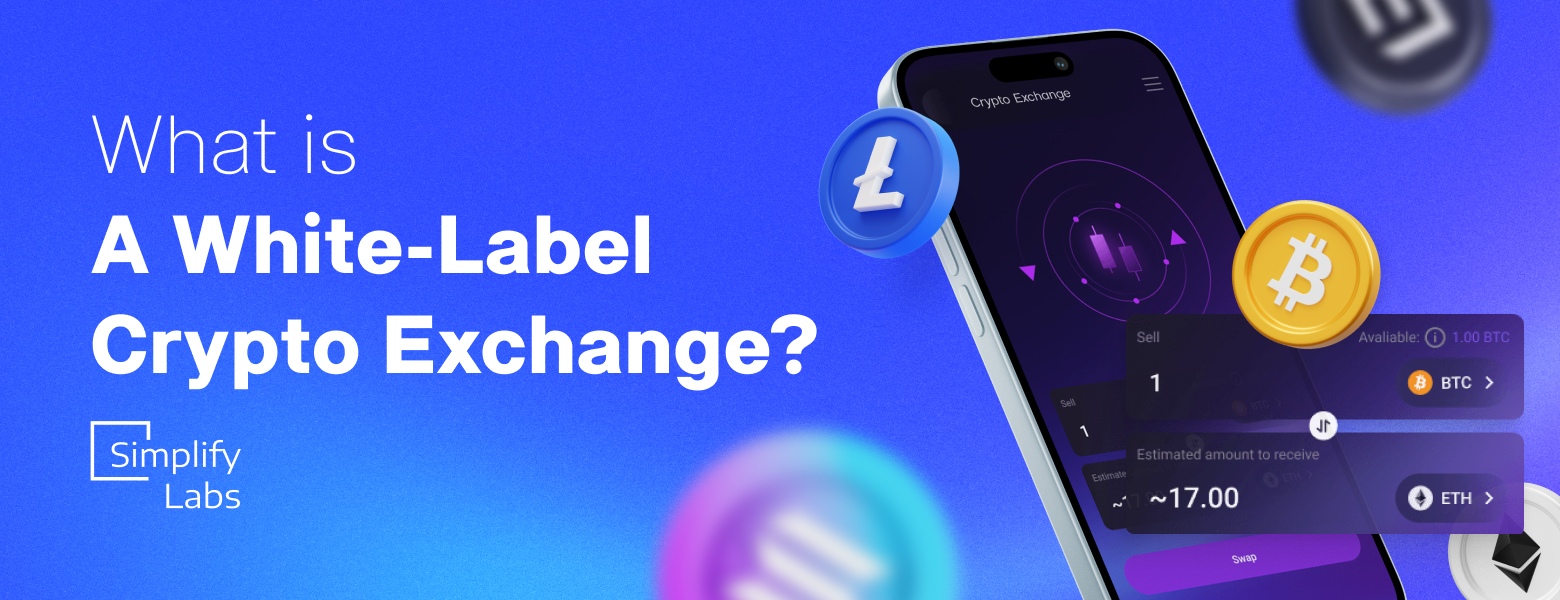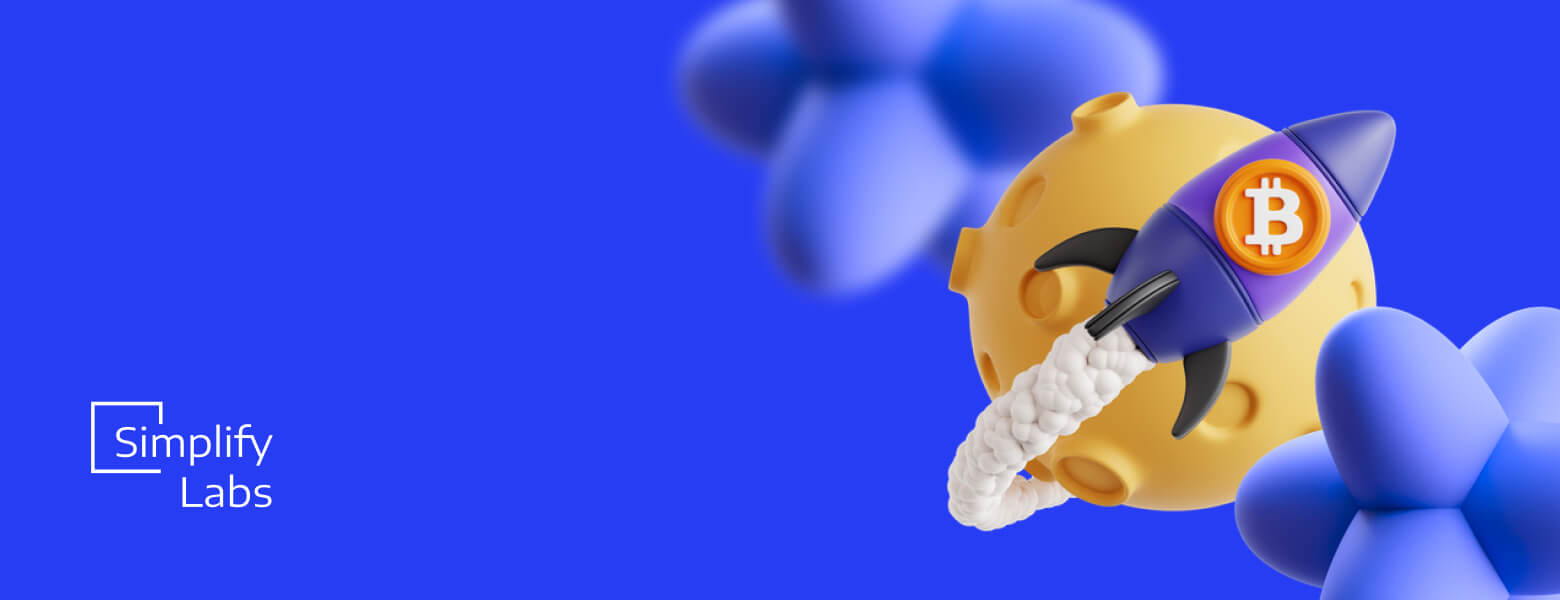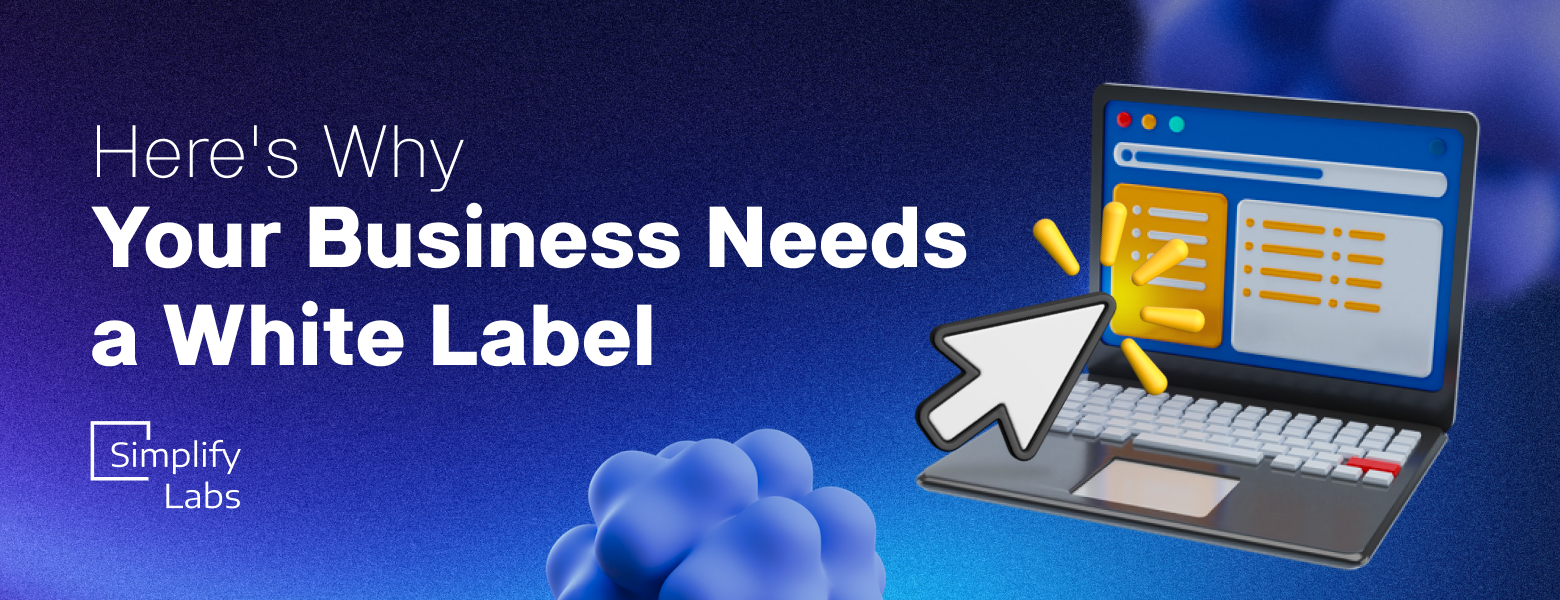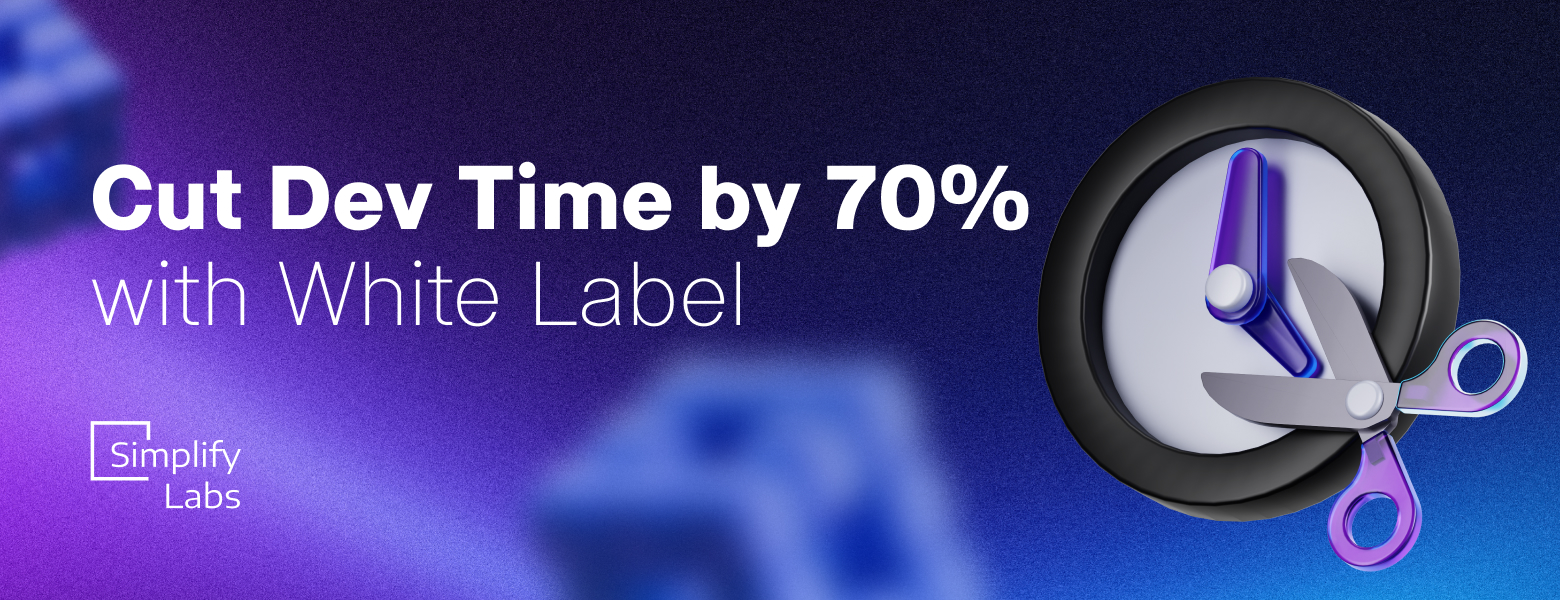Building a cryptocurrency exchange from scratch is expensive and time-consuming. It can take up to two years and cost over $100,000. For many businesses, this is not a feasible option.
White-label crypto exchanges solve this problem. A ready-made cryptocurrency exchange solution offers a faster, more affordable alternative, allowing companies to enter the market with minimal development time and cost.
These platforms come with essential features like digital wallets, crypto-to-fiat conversion, and regulatory compliance. This allows businesses to launch their own exchange quickly and at a fraction of the cost.
What Is a White-Label Cryptocurrency Exchange and How Does It Work?
A white label crypto exchange solution refers to a product or service developed by one company and sold to another, which can then rebrand it as their own. This model allows businesses to leverage an already developed product while customizing it to fit their unique needs and branding.
It is a pre-built platform that businesses can customize and launch as their own cryptocurrency exchange. These solutions typically include a range of features such as crypto trading, fiat-to-crypto conversion, staking, and wallet services, all integrated into a single system. Additionally, white-label exchanges offer the flexibility to adapt to specific business requirements, from design to functionality.
For smaller businesses or startups, white-label crypto exchanges present a valuable opportunity to enter the cryptocurrency market quickly and with minimal investment.
Key Components of a White-Label Crypto Exchange
A white-label crypto exchange solution includes several critical components that ensure its functionality, scalability, and security. These elements are designed to be customizable and optimized for businesses looking to launch their own exchange quickly and efficiently.
| Feature | Description |
| Website | The website includes a complete front-end system with user authentication (OAuth2), trading engines, order matching, transaction processing, and support for multiple languages. It integrates with back-end APIs for live data feeds and integrates crypto wallets (like BitGo or Coinomi). |
| User Interface | The UI uses JavaScript frameworks such as React.js or Vue.js for responsive, dynamic trading experiences. Features include real-time price charts powered by libraries like TradingView or ChartIQ. Customizable elements include trading pairs, chart layouts, and order types. |
| Mobile Application | Mobile apps are built using cross-platform tools such as React Native or Flutter, providing functionality like push notifications (using Firebase Cloud Messaging) and offline access to account data. The apps connect to the server via RESTful APIs or WebSocket for real-time updates. |
| Server Infrastructure | Server infrastructure typically includes cloud-based solutions (AWS, Google Cloud, or Microsoft Azure) with scalable virtual machines and Kubernetes for container orchestration. Redundancy is achieved through multi-region deployments, load balancers, and automatic failover systems. |
| Security Solutions | Security includes AES-256 encryption for data at rest and in transit, SSL/TLS certificates for secure communications, and two-factor authentication (2FA) via TOTP or SMS. Wallet security is handled through multi-signature protocols, and DDoS protection is managed by services like Cloudflare. |
Please note that these tools and services can be customized based on your specific business needs.
Regulatory Compliance in White-Label Crypto Exchanges
When launching a white-label crypto exchange, ensuring regulatory compliance is vital for smooth and legal operations. Many white-label providers offer integrated solutions that include compliance with key global regulations, making it easier for businesses to meet the necessary legal standards.
Below are some of the key licenses and regulatory frameworks that can be integrated into your white-label crypto exchange:
- European Union (EU): MiCA (Markets in Crypto-Assets Regulation)
- United Kingdom (UK): FCA Registration
- United States: MSB (Money Services Business) Registration, FinCEN Compliance
- Latin America (LATAM): Varies by country, but generally includes AML (Anti-Money Laundering) and KYC (Know Your Customer) requirements
- Global: FATF (Financial Action Task Force) Recommendations, CRS (Common Reporting Standard)
Moreover, it’s important to highlight MiCA (Markets in Crypto-Assets Regulation), which came into force in June 2023, with full implementation set for 2025. This regulation establishes a unified legal framework for crypto-assets within the European Union, ensuring consumer protection, financial stability, and market integrity. MiCA governs the issuance of cryptocurrencies, the activities of crypto-service providers, and includes investor protection measures, as well as AML and KYC requirements to combat illegal activities.
Given the upcoming full implementation of MiCA, it is crucial for businesses to launch crypto exchanges with these regulations in mind.
What Are the Advantages of White-Label Cryptocurrency Exchanges?
Here are the top advantages of adopting a white-label crypto exchange solution:
Fast and Easy Launch
Developing a cryptocurrency exchange from scratch can be a lengthy process, often taking anywhere from a few months to two years. White-label solutions, on the other hand, allow businesses to launch their platform quickly, cutting down the wait time significantly.
Cost-Efficient
Custom cryptocurrency exchange solutions can be prohibitively expensive, often exceeding $100,000. White-label crypto exchanges offer a more affordable alternative, with prices typically ranging from $10,000 to $30,000. This significant cost-saving allows businesses to invest in marketing and customer acquisition instead of allocating resources to lengthy development processes.
Hassle-Free Deployment
White-label exchanges are generally ready to deploy, with businesses only needing to submit their requirements. Developers then customize the platform according to the business’s needs. This makes the setup process smooth and straightforward, with many providers also offering support during deployment to ensure everything runs smoothly.
Advanced Security and Trading Features
Security is critical for any crypto exchange, and white-label solutions come equipped with robust security features, including encrypted databases and secure authentication protocols. These features are already integrated into the platform, so businesses can avoid the technical complexity of developing their own.
No Server Setup Costs
When using a white-label exchange, businesses are relieved of the burden of server deployment. The process and costs associated with setting up and maintaining servers are typically handled by the white-label provider, freeing businesses from additional technical concerns.
Bug-Free Software
White-label crypto exchange platforms have been rigorously tested and are ready for use right away. This eliminates the risks of encountering bugs or delays, which are common when developing a platform from scratch. Partnering with a trusted cryptocurrency exchange software solution provider ensures that the software is live-tested, delivering a smooth and reliable user experience from day one.
Regulatory Compliance
When selecting a white-label crypto exchange solution, it’s crucial to ensure that the platform complies with essential regulations. Many providers offer software that adheres to KYC (Know Your Customer), AML (Anti-Money Laundering), MSB (Money Services Business), and CTF (Counter-Terrorist Financing) legislation, ensuring that your business meets all the necessary legal requirements.
Real-World White-Label Crypto Exchange Case Studies
At Simplify Labs, we work closely with clients to build custom white-label solutions that address their unique challenges. Here are a few examples of how we’ve helped businesses navigate the complexities of the crypto exchange space and achieve their goals.
Coinpayments: Enhancing Payment Gateway Solutions
Coinpayments is a leading global payment gateway for cryptocurrencies, offering businesses the ability to accept digital assets as payments. The challenge Coinpayments faced was expanding their platform while maintaining high security and ease of use for their clients.
We provided them with a fully integrated white-label crypto exchange solution that allowed them to streamline payment processing, integrate multiple cryptocurrencies, and offer secure wallet management features.
Kyrrex: Building a Robust and Scalable Exchange
Kyrrex, a growing cryptocurrency exchange and payment platform, approached us with the need for a scalable, user-friendly platform that could handle high transaction volumes while offering features like fiat-to-crypto trading and secure wallet management.
Their previous system lacked the flexibility and reliability required for rapid growth. Our white-label crypto exchange solution enabled Kyrrex to launch a fully functional platform, integrated with advanced trading features and real-time market data.
The customizable design of the platform allowed Kyrrex to offer a seamless trading experience, addressing issues of scalability, speed, and security that were previously limiting their expansion.
Moneta-IN: Bridging Traditional Finance with Cryptocurrency
Moneta-IN needed a cryptocurrency exchange software solution to integrate crypto trading into their existing financial infrastructure. The company aimed to offer secure trading, investment options, and staking features for a wide range of users, while maintaining regulatory compliance.
Simplify Labs worked with Moneta-IN to provide a customized crypto exchange platform that included secure wallet integrations, robust transaction processing capabilities, and enhanced security measures like multi-signature wallets. Our solution also supported fiat-to-crypto conversions and provided flexible trading options, allowing Moneta-IN to offer a broader range of financial services to their clients while maintaining high standards of security and regulatory compliance.
Conclusion
After evaluating the advantages of white-label crypto exchanges, it’s important to decide whether this approach aligns with your business goals. If you’re aiming to create a highly unique crypto exchange with custom features not found in existing platforms, building from scratch might be the better option.
However, if you’re seeking a quick, cost-efficient, and low-maintenance way to enter the market, white-label crypto exchanges could be the ideal solution. They also help reduce risk, as these platforms are typically offered by trusted providers and have undergone thorough testing.
If you’re ready to launch your own crypto exchange with MiCA compliance and all the necessary features, contact Simplify Labs today. Our expert team will help you find the perfect white-label solution tailored to your business needs and get you up and running in no time.






